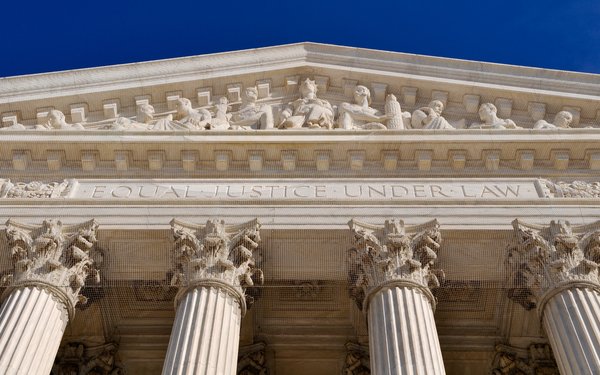Supreme Court Expands Digital Privacy, Requires Warrants For Location Records
- by Wendy Davis @wendyndavis, June 24, 2018

In a decision cheered by privacy advocates, the Supreme Court ruled 5-4 Friday that the police generally must obtain a warrant before acquiring cell tower records that reveal people's locations over time.
Writing for the majority, Justice John Roberts said that people have a "legitimate expectation of privacy" in records of their physical whereabouts.
"A cell phone faithfully follows its owner beyond public thoroughfares and into private residences, doctor’s offices, political headquarters, and other potentially revealing locales," Roberts wrote. "Accordingly, when the Government tracks the location of a cell phone it achieves near perfect surveillance, as if it had attached an ankle monitor to the phone’s user."
The digital rights group Electronic Frontier Foundation called the ruling a "major victory."
"Cell phones are essential to modern life, but the way that cell phones operate -- by constantly connecting to cell towers to exchange data -- makes it possible for cell providers to collect information on everywhere that each phone -- and by extension, each phone’s owner -- has been for years in the past," the EFF writes.
The ruling came in a criminal matter dating to 2011, when federal prosecutors obtained court orders requiring Sprint and MetroPCS to turn over 127 days' worth of cell phone location records for Timothy Carpenter, a suspect in robberies in Michigan and Ohio. Some of the records showed that Carpenter was present at the scene of the crimes. He was convicted of several robberies and sentenced to almost 116 years.
Had the prosecutors sought warrants, they would have had to convince a judge there was probable cause to believe the cell tower records would provide evidence of a crime. Instead, prosecutors sought the orders under the Stored Communications Act, which doesn't require a showing of probable cause.
Carpenter unsuccessfully asked the trial judge to suppress the records. He later argued to the 6th Circuit Court of Appeals that evidence from Sprint and MetroPCS should have been thrown out, because the prosecutors had not obtained warrants.
The 6th Circuit rejected Carpenter's argument, ruling that warrants weren't necessary because the cell tower records were held by third parties -- the carriers. Therefore, the judges ruled, Carpenter didn't have a reasonable expectation of privacy in the records.
The 6th Circuit's decision drew on a Supreme Court case from 1979, when the court held that the police didn't need a warrant to obtain a list of phone numbers dialed by a suspect. The court said in that case that people have no reasonable expectation of privacy in information shared with telephone carriers or other third parties.
But that rationale has been called into question by more recent Supreme Court decisions. For instance, in 2012, the Supreme Court ruled that the police violated a suspect's rights by installing a GPS device on his car without a warrant. In that case, Justice Sonia Sotomayor said in a concurring opinion that people might have an expectation of privacy in certain data -- including websites visited, books purchased and email addresses in their contact lists -- even when they share such information with outside companies.
And four years ago, the Supreme Court unanimously ruled that police need to obtain a warrant before searching a suspect's cell phone.
With Friday's ruling, Roberts explicitly carved out an exception to the idea that people cede privacy rights to information shared with third parties.
"Given the unique nature of cellphone location records, the fact that the information is held by a third party does not by itself overcome the user’s claim to Fourth Amendment protection," Roberts wrote. "We hold that an individual maintains a legitimate expectation of privacy in the record of his physical movements as captured through (cell-site location information)."
At the same time, Roberts attempted to narrow the decision by writing that it only covers situations where the police seek more than seven day's worth of cell location data.
A host of tech companies -- including Google, Microsoft, Facebook, Twitter and Verizon -- filed a friend-of-the-court brief urging the Supreme Court to rule that digital data is entitled to "strong" protections against searches by the police. The companies argued in a friend-of-the-court brief that the Fourth Amendment, which protects people's privacy, applies to digital data as well as physical material -- even though web users necessarily share digital material with a tech platform.


